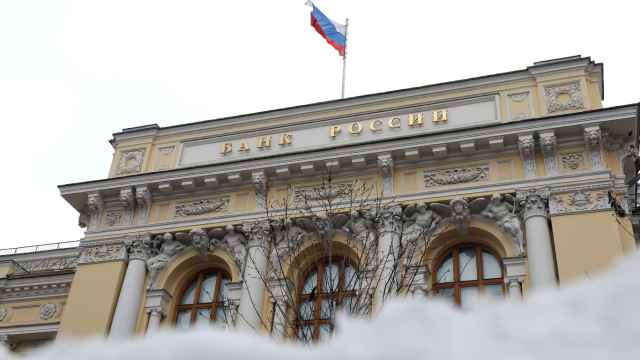Social media triumphed during the Jan. 24 terrorist attack at Domodedovo Airport. Twitter is credited for breaking the story. Many believe this spells victory for new media outlets and casts doubt on traditional media’s continuing role. But a closer look actually calls into question the utility of both new and traditional media in Russia.
The use of social media at Domodedovo follows a worldwide pattern. Thanks to modern technology, users can publish up-to-the-minute observations directly from news hot spots. Critics counter that unvetted amateur journalism lacks the reliability and perspective that can be provided by professional journalists at traditional media outlets.
Another triumph for social media was the story of the despised taxi drivers at Domodedovo. They charged outrageous fares to shuttle distressed travelers back to the city. The news went global. USA Today reported that cab fares “were averaging as high as $700.”
Was that really a triumph? Journalist Ilya Barabanov of New Times magazine implied that the taxi scandal was a political ruse. He said the idea was to shift public anger away from an airport security failure to a trumped-up story about taxi drivers. But bloggers claimed that Barabanov admitted his claim was unsubstantiated.
Broadcast coverage of Domodedovo came under scrutiny as well. Many suspected that key television outlets held up coverage to see how political leaders wanted the story characterized. What kind of reliability and perspective would that lend to this big, distressing story?
It left me wondering where the truth lies. Although social media reports come promptly, they often have questionable reliability. Professional journalism is potentially more reliable, but for many it fails to fulfill its promise. Reliability and perspective become the casualties.
What a conundrum. But a recent report on print advertising revenues in seven key cities suggests an answer. It shows that the top moneymaker in each city was a TV guide. Contents include the program listings; entertaining but frivolous celebrity gossip; and food and fashion articles.
Revenues of the city newspapers pale in comparison. That may be the answer to the conundrum. The television guide does what many of the newspapers don’t do. It promises something that readers want — and then delivers on the promise. This allows it to assemble a substantial audience and create a framework of trust. That’s exactly what companies need for their advertisements to get the best results.
Readers wouldn’t want a television guide that’s unreliable. Someone who’s looked up the time and channel for Anna Chapman’s new television show doesn’t want to find that he’s tuned in to a self-laudatory program about the mayor. The consumers don’t want to be tricked.
The problem for so many newspapers is that they don’t deliver the reliable news that consumers want. Readers look for news but instead find too much paid propaganda that is masquerading as news. That doesn’t build trust, and it certainly doesn’t put readers in a frame of mind for buying what they see advertised.
Perhaps that’s one reason why Russian newspapers get such a small share of legitimate ad spending. Figures from 2007 — particularly reliable because they were pre-crisis — show that newspapers worldwide got nearly 30 percent of total advertisement. In Russia, it was only 5 percent.
As a result, many of these indigenous newspapers are abject business failures. In the competition for print advertising, they are losing to television guides. Without corrupt money from paid-for news, how many could even stay in business?
The media situation is really a vicious cycle that is driving a downward spiral. A dearth of legitimate advertising money begets corrupt payments for phony news. That, in turn, begets reduced readership and weakens reader trust in advertisement content. That brings diminished results for legitimate advertisers who respond with tighter ad budgets. And so on.
Fortunately, President Dmitry Medvedev has a program to normalize the country’s dysfunctional media sector. He is seeking to diminish corruption throughout society and promote modernization. The news business certainly needs that. More recently he has come out in favor of getting the state out of the media business and making sure that media decisions are not dictated by the government.
But now we need to see this program bear fruit for neglected media consumers. If Medvedev can pull this off, it will make him a real hero. The consumers, advertisers, as well as the economy and society as a whole will all benefit.
William Dunkerley is a media business analyst and consultant specializing in Russia and the former Soviet Union.
A Message from The Moscow Times:
Dear readers,
We are facing unprecedented challenges. Russia's Prosecutor General's Office has designated The Moscow Times as an "undesirable" organization, criminalizing our work and putting our staff at risk of prosecution. This follows our earlier unjust labeling as a "foreign agent."
These actions are direct attempts to silence independent journalism in Russia. The authorities claim our work "discredits the decisions of the Russian leadership." We see things differently: we strive to provide accurate, unbiased reporting on Russia.
We, the journalists of The Moscow Times, refuse to be silenced. But to continue our work, we need your help.
Your support, no matter how small, makes a world of difference. If you can, please support us monthly starting from just $2. It's quick to set up, and every contribution makes a significant impact.
By supporting The Moscow Times, you're defending open, independent journalism in the face of repression. Thank you for standing with us.
Remind me later.





